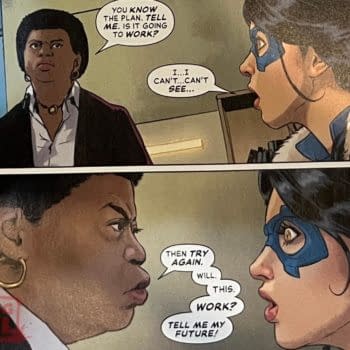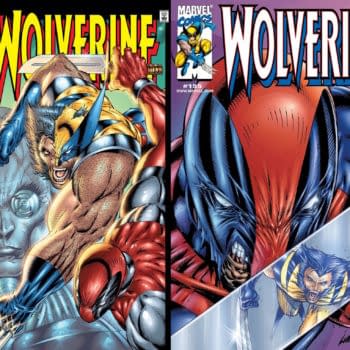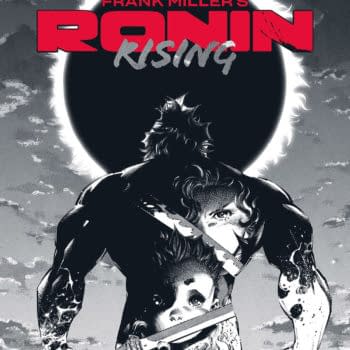Posted in: Recent Updates | Tagged:
A Very English Armageddon by Alasdair Stuart #1: The Day The Earth Caught Fire
There's a chap in Leeds says he can extract water from the atmosphere. Oh, as you were, he's been certified. – Bill Maguire
No one ends the world like the English. One of the earliest memories I have is watching Edge of Darkness, the BBC's frankly astonishing story of murder, environmental politics, nuclear economics and the very real possibility the planet will rebel against us. Not long after that I saw the BBC version of Day of the Triffids, read The Kraken Wakes and discovered that whilst the world ending in Los Angeles was entertaining, the world ending in Liverpool was actively frightening. These were, literally, stories that hit me where I live and authors like John Wyndham and Simon Clark have stayed with me my whole life. The apocalypso is a tune English science fiction loves to dance to and, whilst the accusations of 'cosy armageddons' hold some weight, as Darius Jedburgh himself once said; no one dances like the Brits, they deserve the Falklands. So, every few weeks I'll take a look at a classic of English apocalyptic science fiction and we're kicking off with a gem; The Day The Earth Caught Fire.
Two huge nuclear test detonations, one American, one Russian, knock the planet off its axis and send it spiralling towards the sun. As the climate rages out of control, two Daily Express journalists and a secretary find themselves at the centre of the largest, and possibly last, story anyone will ever file.
em>The Day the Earth Caught Fire is one of English science fiction's kings beneath the hill. It's been largely overlooked as the Doctor, Professor Bernard Quatermass and even Dan Dare get extra moments in the spotlight and, superficially, it's easy to see why. After all, any film which takes as it's starting point the idea that the planet can be knocked off its orbit is already entering dangerous territory. Throw in the frantic attempt to use a second detonation to put us back on orbit and it comes dangerously close to farce.
Except, it actually works. The spectacularly goofy central concept is presented in such a matter of fact, pragmatic manner that the absurdity actually tips over into horror. None of the main characters are heroes, none of them are in the position to do anything about it and all of them find themselves forced to come to terms with their own personal apocalypses as the real one hurtles ever closer.
The main reason it works is the central cast and the way the film focusses in on Pete Stenning and Bill Mcguire at the Express and Jeannie Craig, a press office staffer for the Government. Edward Judd's Stenning in particular is a curious combination of two fisted hero and embittered has been. He's articulate, sharp and entirely broken, a man whose career has risen and fallen in near perfect synch with his marriage. Pete Stenning isn't at the Express because he has nowhere else to go, he's at the Express because he has such little will left that he can't be bothered to leave. Judd shows us all of this behind a tissue thin facade of jollity, his constant, quick fire banter with Leo Mckern and Janet Munro always one step away from a blazing argument. It's not that Pete isn't capable of better or even whether he knows he is, it's that he can't see reconcile a normal life, and losing that life again, with his hunger to be a great reporter. He wants more, he's clearly worked all his life for more, it's not enough and that's killing him faster than the booze. It's only when he stumbles onto the test story, his nascent journalistic instincts resurfacing, that both he and the viewer get a glimpse of the real Pete Stenning; a man who is as driven as he is compassionate, as focussed as he is humane. Bill even jokes that it's taken the end of the world to redeem him but it's actually true. Pete Stenning is looking for a chance to prove himself in every way and his romance with Jeannie, a woman who is literally part of the story of a lifetime, is the only way he can ever achieve that. He's not fixed at the end of the movie, not even a little, but he's close enough, a man of two halves finally patched together on what may be the last day of the world.
Bill Mcguire, at first, appears to leave the film as he enters it; fiercely compassionate, relentlessly articulate and perpetually furious. Mckern was a huge screen presence and this is a perfect showcase for his talents. His Mcguire is simultaneously a figure of authority and a complete loner, a man whose encyclopaedic knowledge of his job and love for his friend is masked behind eloquent, cutting sarcasm. He only lets it drop once and it's almost impossible to watch, the seasoned campaigner suddenly being replaced by a very fragile, very human man staring the end of the world in the face as he offers a toast to the future of humanity.
It says everything about both him and Pete that it's Pete who's strong enough to file the final story and Bill who is kind enough to let him. Just as the end of the world reminds Pete of who he is, it gives Bill a chance to be something more, to be, for once, a spectator instead of a commentator.
Jeannie Craig, in a lesser movie, would be the weakest side of the equation here, a woman who exists to do nothing than be the ideal for Pete to aspire to. Instead, thanks both to the script and to Munro's smart, confident performance she's the one thing Pete needs more than a story; a foil. She challenges him at every level and is, as Bill points out, the re-making of Pete Stenning. You actually see it too, in a scene where Pete has to stay over at Jeannie's due to freak weather. His bantering attempts at seduction last a beat too long and instead of reacting angrily, Jeannie lets him see it. The rules for their relationship are written in ten seconds of film as Pete realises what he's done, apologises and Jeannie accepts it, all without saying a word. She's not just another love interest, she's Pete's equal and the sweet, almost poignant way the Express newsroom accept her only drives that home.
Backed up by a supporting cast that includes an ex-editor of the Express and, in a very small role, Michael Caine, these three performances are the powerhouse that drives the film along. However, the final key to its success is in the direction and script. Val Guest, who was one of the early leading lights of English cinematic SF and horror, directed and co-wrote along with Wolf Mankowitz. Together, the two create a world that dies by degrees, the blasted out, orange heat of the framing sequence in stark contrast to the bustling streets and black and white of the film's central section. The sparkling dialogue and humanity of the characters is likewise set within a superb and supremely dark story of a global apocalypse that denies us everything up to and including certainty.
The final scene delivers this message like a hammer blow as we see two front pages being mocked up, one saying we're doomed, one saying we're saved. As church bells rise in the background we fade out on that, leaving two reporters and a press secretary trapped between the end and the beginning. Because whether the world ends or not, the papers still need to be printed.
Next time we do one of these I'll be looking at Edge of Darkness. In the meantime, some news! Doctoring the TARDIS will return once the BBC have given us official clearance to talk about the game in more detail and, after a delay, next week will see the first Something Beginning with D, looking at Mutant City Blues. I'll see you then.












